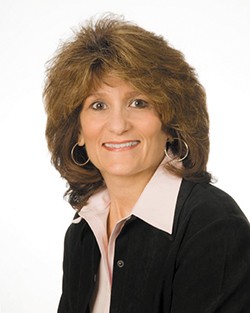Afford vs. Qualify For: Lenders Help Homeowners Decide (OPINION)
by March 16, 2015 12:00 am 120 views

In a magazine article published in Forbes in December 2014, Zillow chief economist Stan Humphries said that, by the end of 2015, those under the age of 35 — the Millennial generation — will become the largest group of homebuyers in the U.S.
Although Millennials may be more tech-savvy than the rest of us, they also came of age during the real estate bubble and subsequent bust that dominated the economic landscape of the past decade. Many of them absorbed the shocks of that rollercoaster ride without learning how to navigate it on their own; they were just along for the ride. And now they are poised to be the largest portion of homebuyers by the end of the year.
Having a good mortgage lender can help Millennials, who might be unprepared or overly ambitious, avoid some mistakes in homebuying. Key among these mistakes is a misunderstanding of how much they can truly afford to pay for a home. Time and again, prospective homebuyers sit across from their mortgage lender and immediately plan on spending the entirety of their pre-approval amount on a new home. And they really should think twice.
Many don’t understand the difference between gross monthly income and net disposable monthly income when considering a loan, nor do they understand what may be included in the overall costs of owning a home versus renting. Qualifying for a loan doesn’t mean you can afford it. Having a frank discussion with a mortgage lender can help determine the difference.
The first step for a potential homeowner is to establish his or her own budget and understand what will be an affordable monthly payment. Owning a home is very different from renting. There are expenses that should be planned and budgeted for.
Taxes and insurance will be included in the monthly mortgage payment, but additional consideration should be given to utility expense and property maintenance. Having a small savings set aside for minor repairs and insurance deductibles is always a good idea.
Know your income and how it works for you on a monthly basis. The key to this is in understanding yourself and how you live your life from day to day. Are you a frugal person? Do you like to eat out frequently, or grocery shop and cook at home? Do you like to use your credit cards or save up before you make a big purchase?
The answers can help you establish how much you can afford in a house payment and still be able to satisfy your other monthly debts. If every penny you earn is already budgeted to one payment or another, there is no room for emergencies.
Understand down payments and the terms of the loan. Some people are under the misconception that everyone needs to have 20 percent of their purchase price saved for a down payment. There are a number of loans available now that do not require that much; find out what they are and what other qualifications they require. Look for the loan terms that best fit your plans.
There are options out there. Talk with your mortgage lender to find the loan with the right terms for you.
And finally, be prepared to take care of your home. Plan on regular maintenance that, if you have been renting, you might not have been responsible for in the past. Don’t tie your entire budget up to just make the payment; you won’t be able to replace the roof after the hailstorm or to repaint when the siding needs it. A house is a large investment; it is like a huge pile of your money just sitting there exposed to the elements. You need to protect it.
Owning your own home has been called the American Dream. Many consider owning and living in their own home a financial priority. The home may be the most valuable asset you own. It can be a reflection of your financial stability or even a source of collateral for future borrowings.
The rewards are attractive. With careful consideration and planning, along with some considerate guidance from a mortgage lender, you can likely make this dream a reality.
Johneese Adams is the mortgage lending manager for Arvest Bank in Fayetteville. She can be reached at 479-444-5665 or by email at [email protected].
